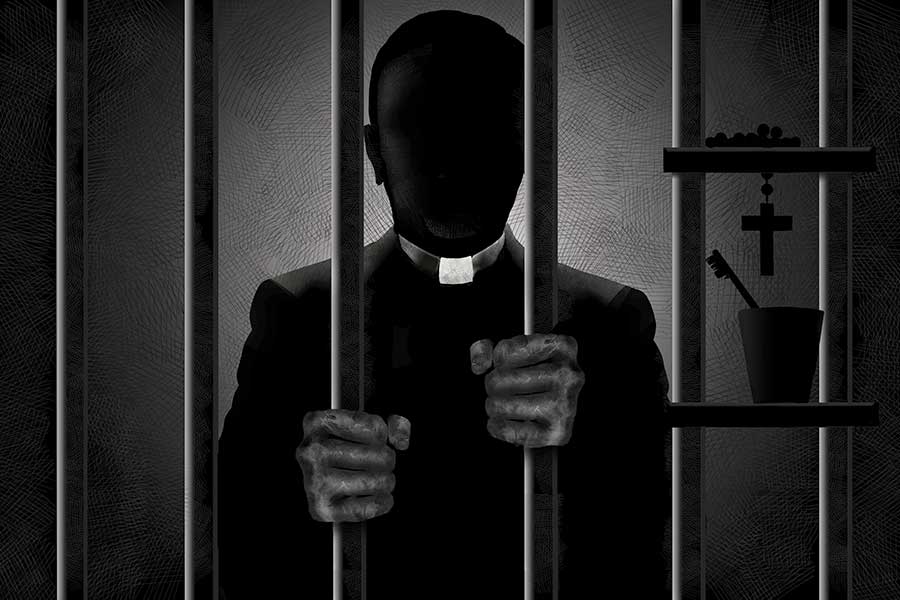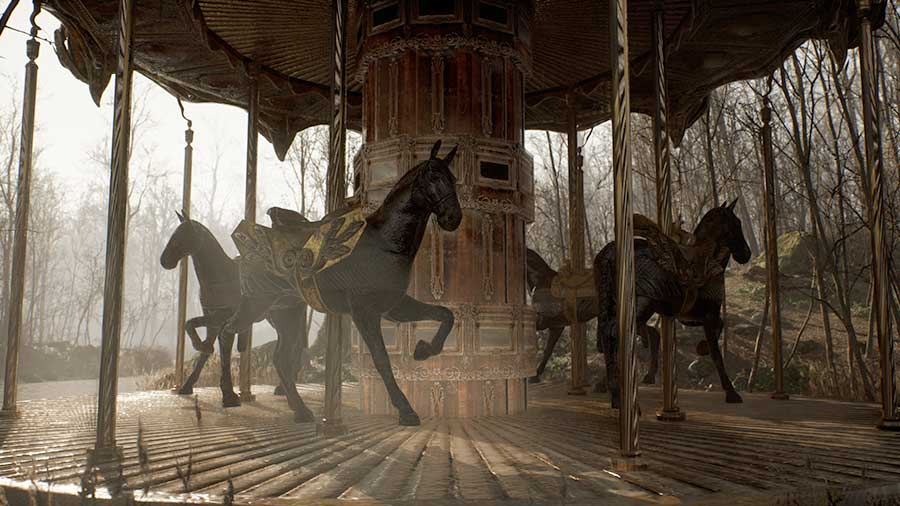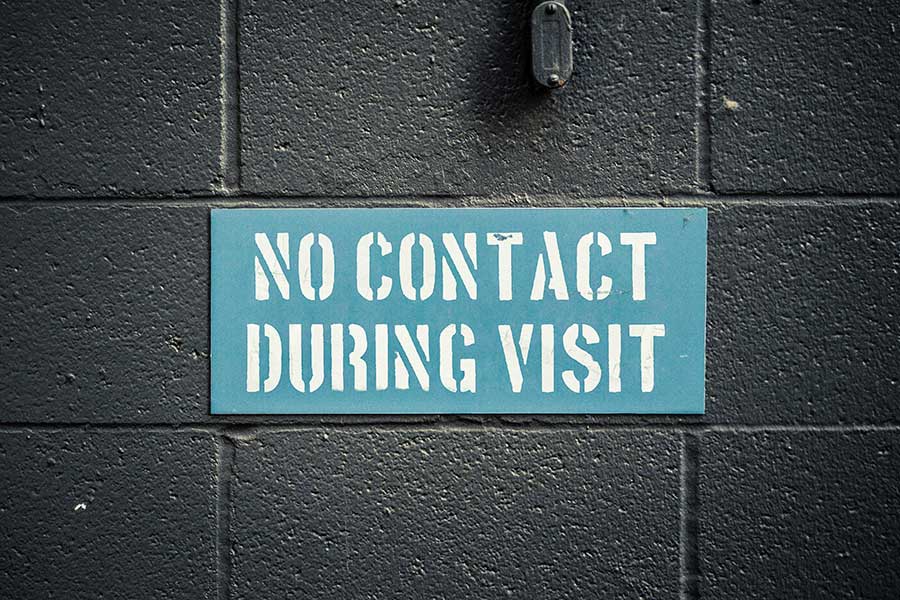After He Realized His Mortality
Once, a young man realized his mortality. Yes, of course Daniel was aware of human mortality, but this direct personal realization hit him like a truck.
HE was going to die, and not just go through dying but then be no more, for all eternity. NOT BE. He was less than a mote in a dust storm!
It was unbelievable! Daniel was bright and talented. His parents loved him, would do anything for him. He had friends. He had been with several women who loved him. He was in love at the very moment of his realization—with Deborah, a beautiful and sexually enchanting woman. How could he lose all that? How could he even consider this catastrophe?!
There was a trust fund. He would pull the drawbridge, buy a house for both of them in a remote location near the ocean and hire security and staff to cook and clean. Perhaps in Africa, on the Kenyan coast. But there were Somali pirates! What if they raided? And even if that was far-fetched, he could lose Deborah if she became bored of the isolation. Or he could not! They might fall more and more into a passionate love that surpassed all other connections and pleasures. And that would be worse! More to lose!
Their relationship couldn’t survive such stress. Deborah wanted to live in the moment, unconscious of the losing battle. The sight of her lovely face broke his heart. They broke up.
Daniel tried to bury his awareness in alcohol and drugs and sex with women who meant nothing to him. Helpful at first, but the horrors of the mornings after soon rendered useless the anodyne nights. So he became celibate and sober.
He went alone into macrobiotics and spiritual practice and stayed in his apartment, doing yoga for hours and reading spiritual teachers. Yogananda reported experiences of astral projection, traveling around the world in his spirit body. Many considered Yogananda a great teacher so maybe it was true. Some of what Yogananda and others wrote was metaphor or intended for a different audience, perhaps, but maybe death is an illusion and the body just a mortal coil. That was something to hold on to, although the loss of his beautiful body was still a terrible thought–and what good would be life after death if he didn’t have his own personality, his identity, his self?
Loneliness. Daniel saw the Krishnas chanting on Market St. They looked ecstatic. They believed. Like them he loved George Harrison and wanted to be caught up in the spiritual sky. The women were long-haired and lovely but safely untouchable and they seemed, like him, to have been burned by desire. Why not visit the ashram next to Golden Gate Park?
Nothing to lose, he danced and begged, then let them shave his head and give him a new name. Now he had companions. The chanting numbed his brain as did fatigue from the long days of work and little food. But one day he watched himself changing the clothes of the little deity dolls before which they chanted and danced and he was embarrassed. Besides, the food was terrible and some of the women were less untouchable than he had imagined.
There had to be a better way. Buddhism was cleaner–the reformation of the polytheistic mess of Vedanta. He read about Tibetan Buddhism but there again were deities and demons, and chanting in an unintelligible language. No, he’d have to go all the way.
Daniel went on retreat to a Zen monastery two hours north of the city. Serious. Thirty-four men and eighteen women but these women weren’t playing. Zazen, the sitting meditation, was hard. Physically painful; mentally torture. He let himself daydream at times but his daydreams had driven him here so he didn’t want to indulge them. So he tried harder.
He cleaned and helped cook, sat and meditated on impermanence, walked and meditated on compassion. Dharma talks included the value of grateful joy. Impossible. He cried sometimes in front of the others and felt like crying much more often. He didn’t know how to connect with others or whether he was even supposed to. He missed Deborah and his family and friends. Why did he have to suffer so greatly when so many remained happy idiots?
On the fifth day he met with the abbot.
“Why are you here?”
“I am forlorn. My life is a burning candle. I shall cease to be and this is unbearable knowledge that I cannot unlearn.”
“Who dies in this day and age?”
“We all die!”
“Who, exactly?”
“Me! Yes, I know, I’m self-centered, maybe a narcissist. I do feel pain for others but mostly me, yes. How can this ever change?”
“Who really dies?”
“Please, I respect you and the practice but I need help not games. Me! I will die! If reincarnation is real, I will be re-born but not as me! What good is that? All that has made me ME will be destroyed–my beautiful body, my genetic code, my memories. All will die! It’s a tragedy for all of us, or a joke, or random meaninglessness.”
“But you are young. When will you die?”
“Sometime! It doesn’t matter when; it’s inevitable. All men are mortal; Socrates is a man, etc. Everything I have ever experienced will be gone. I will not BE. It will be as if I never was. The void. I will be annihilated.”
“But not soon?”
“Maybe, if you decide to kill me. And maybe that’s what I want. If I am dead I will no longer suffer from this absurd existence, where I am supposed to learn, love, enjoy and serve, all to have it snuffed.”
“Have you worked in our garden?”
“What?”
“Are you in a hurry to leave this monastery?”
“Well, no. Not really. Uh, I don’t think I have any place to go. You know, wherever you go, there you are and all that.”
“Have you worked in our garden?”
“Ah, no. I have not worked in the garden.”
“I suggest you go to the garden. Do some planting and weeding. Follow instructions and observe carefully the living entities.”
Daniel had already decided to throw himself onto the tradition and seek refuge in the sangha. So he would go to the garden.
He followed the instructions of others, especially Busan, a middle-aged Asian man who was head gardener. He weeded. He transplanted seedlings — vegetables and flowers, many of them annuals. Surprising and silly. Annuals are mayflies.
But we are all mayflies! He looked at the cumulus clouds in the azure sky. Lovely. So what? The sky was eternal but he was not. Wait! Was even the sky eternal? The blue sky? He had read astrophysicists who explained that in time the sun would expand and turn the earth to an uninhabitable desert. And later the sun would absorb the earth completely? Who? The entire world! When? Eventually! There would be space but no blue sky!
“I could kill everything in this garden. Let me be Kali. I will be the executioner instead of the victim.” He recalled stomping on ants as a boy after another tongue-lashing from his crazy mother. He had felt like a god. But then he felt guilty.
So, ahimsa. No ant-stomping. But why pull the weeds? What was the point of gardening, or eating? Daniel could fast to death. He had heard this was a relatively painless death, once one got past the hunger.
He needed to think less, he got that. He would do as he was instructed.
Daniel’s father once told him, “don’t be afraid to get your hands dirty.” He had thought of it as a metaphor–his father was an easily bribed government official. But maybe it wasn’t a metaphor. Daniel liked digging in the earth. Busan said he seemed to have a green thumb. Surprising.
He saw how important the weeding was for vegetables. Once he had cleared a section the next week’s growth was strong. This was true for flowers too. They were like pets. He admired the tall blue ones and the saucer-shaped flowers that climbed like vines toward the sun. He learned how to stake them and the other tall perennials that would fall over without help.
He was helping to feed people and he liked most of them. They were serious but few were grim. Some smiled and laughed and seemed not to be faking, although there was a dharma talk where they were encouraged to “fake it ‘til you make it.” It was confusing. For once, he didn’t feel like the smartest guy in the room. That was a relief.
After three weeks in the garden he met again with the abbot.
“How do you like the garden?”
“Yes, it’s good. Busan is good to work with. It feels good to get my hands in the dirt. I like helping to feed people, and I have come to appreciate the flowers as well.”
“You formerly did not like flowers?”
“Well, you know, ephemeral and not nourishing, especially the annuals.”
“Yes, but beautiful—the annuals are most beautiful.”
“OK”
“Have you observed the fauna as well as the flora?”
“We work to keep them out.”
“You keep all of them out?”
“Well, not the bees and other bugs”.
“So, continue your gardening. And look more closely.”
Daniel bowed and left, thinking “Well, at least I didn’t get a koan.”
Midsummer in the garden was hot. Everyone wore a straw hat, shorts and sneakers. Not the uniform he had expected. There were large dry patches at the edges of the garden. He thought they could do more there, if they could water more. Busan wanted to conserve water but let Daniel dig up the dry soil and use a watering can.
He dug and found many worms and insects. Here’s fauna. He put down his can to observe. There were a lot of black ants running around like crazy people. Monkey mind. They seemed to be finding food and heading off somewhere.
He told Busan he was supposed to observe insects. Busan smiled and said, “say hello for me.”
Daniel followed the ants who crawled under and through the garden fence. They went through the grass and into the woods. Tracking was slow because their paths wandered as if they were lost. But not all those who wander are lost. He crawled along the ground, surprised at the length of their journey. Daniel was at it for over an hour. Eventually, he found hundreds of ants converging. Their nest must be nearby but he couldn’t find it. Perhaps there were many little trails leading to their home.
With his back aching and with dinner coming he turned to go. As he turned around he was surprised to his left by a mound of dirt and sand at least three feet high. This was it. There were ants disappearing into the mound, though not as many as he expected. The nest was underground, he knew, so this mound must be the dirt they dug up while creating a home. Impressive.
In the following weeks Daniel spent a little time each day with the ants. One day quite far from the nest he saw a stream of red ants and followed them. They encountered some black ants, maybe his, and the fight was on, like a psychedelic game of checkers but violent, a battle he could watch from a great height. A song came to his head: “Once turquoise armies lay opposite and ready, but wondered why the fight was on.” Hendrix and Axis: Bold as Love. And the album cover: Hindu deities, Krishna and Arjuna, the charioteer. Oh, no, not back to the Gita!
Transfixed, he watched the smaller red ants combine to attack black ants and seemingly paralyze them with venom, and then drag some of the larger black ants away. The black ants were valiant. They would come to the aid of a besieged sister, often to lose their own lives to a half-dozen red ants. Many black ants were drawn and quartered by the vicious red ants who seemed to take the defeated enemy as food. And it looked like they had captured the nest of the black ants–quite distant from the nest of his ants. The black ants were exiled but came back to the battlefield over the next two days to retrieve their dead. So touching!
Nature–us and them. Daniel thought of another song, “The rivers are full of crocodile nasties, and he who made kittens put snakes in the grass.” Well, he had let go of a personal deity when he left the Krishnas. But it was depressing to think how ants, so good to their own, had been warring with other ant species for a million years for food and territory. And humans had been at it for 200,000.
Hendrix had it right–there ain’t no life nowhere.
On his third meeting with the abbot:
“How is it going in the garden?”
“OK. We have eggplants and squash and melons are coming in, as well as the usual vegetables. And the delphiniums and morning glories are beautiful–you know, they need to be staked.”
“Yes. Good. Any fauna?”
“Well, I have been observing ants.”
“Ah, please tell me what you have seen?”
“Warfare, vicious warfare between black and red ants.”
“Like Thoreau!”
“Thoreau?”
“Yes, the Battle of the Ants, from Walden. Have you read Thoreau?”
“Only Civil Disobedience.”
“Of course. Yes, ants do battle. Is that all you saw?”
“Well, the ants cooperate, like they are a single organism. A complex society with all working together, but their solidarity does not extend beyond their colony, or species. And it’s not going to change–it’s been that way forever.”
“Would you like to be an ant?”
“Is that my next incarnation?”
The abbot smiled. “Would you like to be an ant?”
“Uh, no. They crawl all over each other and they are serving the colony just so the queen can reproduce. And it goes on and on with absolutely no purpose except mindless repetition.
But …. maybe we are all ants.
“How many are in your colony?”
Daniel thought for a moment. “Fifty-three?
Smiling more broadly, the abbot replied, “That is a nice number. How is your inner garden?”
“Weedy. I wander. I think of impermanence with great sorrow but I am trying to accept. Compassion is easier, even for the ants.”
“Is it? Please return to your garden. Soon you may be ready for a new name.”
Daniel felt freed from his study of ants. Good timing because it was nearing harvest time for many vegetables. Chomden and Lamon had joined the garden crew.
Chomden was a white woman his age, thin, blonde and blue-eyed with tattoos of angels and demons on her arms. She had scared him at first but he learned that her energy was warm and gentle though she sometimes grimaced and appeared to be in physical pain, as if she suffered from severe stomach cramps. He saw in the garden that the tattoos covered cuts.
There is so much suffering in the world.
Lamon looked Hawaiian or Samoan. Large, strong, and athletic. He seemed like someone whose worst day had been one with bad waves. Why was he here? In the garden he worked hard and seemed to have grateful joy. He would split a melon and eat it like an apple.
Lamon did not seem attracted to Chomden–perhaps he was gay. But Chomden smiled at Lamon like he was Jesus.
When Lamon wanted a break he would throw rocks from the garden at trees in the woods beyond. Chomden would clap when he hit one. Daniel played a lot of baseball as a kid. He had a good arm. So he joined Lamon and they were well-matched. Now Chomden clapped for both. Daniel urged her to try. She insisted she threw like a girl and laughed at herself. But Daniel and Lamon encouraged her and she soon managed to hit a few trees.
Daniel was good at inventing games but caught himself in time before constructing a contest with Lamon. Competition was not cool. Better to try to practice the Zen of rock-throwing, relaxed focus without attachment to the outcome.
He saw that he was making progress and allowed himself to be pleased. He had been right to come to this place.
Daniel reported to the abbot, “I have been thinking of Arjuna.”
“Ah, and duty?”
“Duty, obedience, caste consciousness, nationalism, war, once again into the breach. Men as ants, dying for their side.”
“Is the Gita really about war?”
“Yes, No, Yes, No. I was with the Krishnas for a while, you know. Devotion to the blue boy God. Emptying out oneself. In reality it serves the rulers.”
“Sunyata. The emptiness. I have read that Gandhi’s last word was “Rama,” an exhaled prayer in the second after he was shot by a Hindu nationalist.”
“A lot of good that did him.”
“Don’t you think he had transcended most of his fear of death? Don’t you think he had emptied himself of his own desires in order to serve the larger community?”
“Um, I read that he slept with young girls in the last years of his life.”
“Ah, always a scandal to keep us from our work. How much we like to find the clay feet, present or not.”
“Presente! There too often. But I want to be in reality, to know the truth. I saw with the Krishnas how damaging cover-ups could be.”
“Relax. You would do well to approach Gandhi. The Gita, the sutras, gospels, the practice, communal life–these are all about non-attachment to the false self, and sometimes the practice is simply to observe the insignificance of one’s false self, one’s ego.”
“I’ve been thinking of studying the Prajna sutra.”
“Study nothing but your attachments. Observe your critical judgments, your scandal seeking. Your self-importance. Your self-seeking. Your desire for Chomden and your schemes to find yourself somehow superior to Lamon.”
Daniel opened his mouth to protest but no sound exited. His mouth was suddenly bone dry. His heart was beating fast and loud and he could hear the blood pounding near his ears.
He knew that he was blushing. He wondered if he was dreaming, or tripping. Was he being deliberately shamed? Did the Abbott have contempt for him? Hate him? Where could he go now that he was despised here?
He wished he could faint but he did not. The abbot smiled, seemingly not in a mean or supercilious way. Daniel lost track of time.
“I feel sick.”
“Yes.”
“This is all barely true. May I ask what you’re doing? Has someone said something about me?”
The abbot smiled again: “No one has said anything. Elementary, my dear Watson. It was predictable how you would react to their presence. None of this is to hurt you. This is all part of the process. We have all blushed in shame when we have been revealed, often without anyone’s assistance. There is no need for shame, only learning.
We can observe our hamster wheel minds as well as our monkey minds, without shame but with a laugh–how silly is our mind, how eager to deceive ourselves and others. How full of self-deception we can be. How we can congratulate ourselves when we are falling on our faces. And that is why we are here, or there, and on the path.
Now, forgive yourself, laugh at yourself, and go back to the garden and join your brother and sister and help feed us. And think about numbers.”
“Numbers?”
“Fifty-three is a nice number but it is not the right number.”
Daniel’s heart was still beating like a hummingbird’s. This was going to be a very difficult day, week–who knew how long. He was filled with fear but he did know how to begin.
“Thank you.”
He walked back toward the garden, hoping that he was not completely transparent to Chomden, Lamon, Busan and the few other garden workers. Busan waved as he entered through the melon patch and Chomden walked towards him smiling and holding something in her gathered hands. His heart started the tachycardia dance again and he prayed in the old way–please don’t let her say anything!
She reached him and opened her hands. Five nearly round rocks, perfect for throwing at the trees. She seemed delighted with the rocks and herself. “I’ve been practicing today. I hit three in a row.”
Oh, thank you, thank you to whomever, whatever. He praised the rocks and Chomden. He would just focus on doing everything well without overdoing it. He believed he would calm down eventually.
That night during zazen he allowed himself to think more about what the abbot had exposed. Yes, he was attracted to Chomden and he was competitive. OK, ego. He was embarrassed again. He said he wanted reality and the abbot gave it to him. He needed to acknowledge and forgive himself. Shame was more ego.
And he thought about numbers. Had he missed a new entrant or had someone left? No, that couldn’t be it. The abbot wouldn’t mean that.
Too small? Four billion people? It was probably more now. Was that too small? All sentient beings? Or was it 1. Just focus on myself?
Shit, this might be a koan. If so, he shouldn’t think too much about it.
Harvest time meant picking but also preserving. Squashes in the root cellar, preserving other vegetables, and tending the compost piles–learning skills he had never cared to learn. Daniel wasn’t that interested in learning them now. But he knew it made sense for the community and it kept him occupied and focused.
Still, he came back sometimes to the reality: food is grown and harvested, prepared, consumed and pooped. The sustenance is temporary and we have to eat again the next day. We have to organize ourselves and society to have regular access to food. Like the ants. And it was just as pointless. Lather, rinse repeat, ad nauseum, ad infinitum. Well, maybe not ad infinitum.
Life is a tragedy. He knew there were philosophers who thought the same way though he could never keep the philosophers straight. Schopenhauer? He did remember Seneca from a college course: “What need is there to weep over parts of life? The whole of it calls for tears.”
We treat a child’s birth as the greatest moment but it is really a tragedy. We should treat death as the greatest moment, the liberation. Buddhists know this though we have to act as if every day is an opportunity for something. For learning how not to be reborn, that’s what. Not exactly an endorsement of life. Life is suffering, that’s the first noble truth. So stop reproducing!
Maybe the correct number was zero.
Chomden was getting better, as in less frequent stomach pain, more lighthearted. Lamon must have rubbed off on her. Not rubbed one off. Or maybe he did. Daniel would masturbate sometimes but not as much as he used to. Meditation reduced the sex energy and calmed him without the enervation that followed masturbation. He knew he was in the best shape of his life. Too bad he wasn’t wooing anyone. Well, no.
“You have completed a season—growing, harvesting, storing. What do you think and feel about that?”
“I feel good about it. I have contributed and learned some things. I think it is prosocial and that is good. I still sometimes think, what’s the point?”
“Isn’t the point to feed your community? And develop yourself?”
“Yes, I understand. I think I should stop complaining about the unchangeable.”
“That would be wise. I have decided it is time for your name.”
Whoa! Daniel had been very curious about his eventual name even though he tried not to be–what difference did it make?—but he had resented his name with the Krishnas—Vittesha, “the lord of wealth.” He had been too eager to please in his desperation for comrades and told them too much too soon. As a result he now had significantly less wealth than before he went to chant with them. The head of the ashram told Daniel/Vittesha that his new name was an aid to developing less attachment to wealth. Uh-huh, well he had less to be attached to, so yeah, that worked in a way, especially for them.
He knew Lamon meant “gentle” and Chomden was “she who overcomes the negative with positive.” Those seemed so fitting. He knew Busan was a city in Korea but had assumed the etymology meant something profound. When he asked, Busan had laughed and said it was the second largest city in Korea. Weird.
He hoped that his name would identify and reflect some essential quality of his personality or dharma but then he would stop himself. No ego, it didn’t matter.
So he sat patiently as the abbot smiled.
“Ari”
“Is my name?”
“Yes.”
“And the meaning?”
“Go find Busan and ask him.”
“Thank you.”
More games. Just tell me, for God’s sake.
Ari? Sounded cool. Very accessible and international. But, shit, there’s Ari Onassis. Please no association with a shipping tycoon and Jackie Kennedy. That couldn’t be it. Short for Aristotle, because I’m such a philosopher? Ha-ha, he had learned spiritual names could be sardonic but no, please. And it didn’t seem the style of this monastery or the abbot.
Busan was at the compost pile.
“I have a Buddhist name!”
“Ah, very good. Who are you?”
“Ari.”
Busan laughed and came closer to Ari and hugged him.
“Such a good name. He is good at this.”
“Translation, please?”
“Ant. It’s Japanese.”
Ari thought nothing and said nothing, for about five seconds, a personal record. As if coming out of a dream, he laughed.
“It is a good name.”
Ari helped Busan with the compost and with cutting some trees in order to expand the garden space for next year. He thought about ants, his ants and the other ants. All the ants. Sentient beings? Was that a stretch? Able to perceive, to feel. They could see and find food but they could not perceive the future, could they? They could not “perceive” their mortality. Or the fucking futility of their instinctual choreography.
They were pretty loyal, though. Give them that. Serving a queen? Ha-ha, up the revolution! He would have to think a lot about ants. There sure were a lot of them. Even after nuclear holocaust there would be ants and roaches. We will rule!!
While clearing brush he thought about numbers again, for the nth time. What is the number, Ari? He loved this name.
He remembered something from college, or was it high school? A number is an idea; a numeral is its name. He wasn’t asked about a numeral. Was that significant?
What’s a number without a numeral? Sounds like the first line of a joke. Oh, shit. Was that it? What is that?
Pi? That’s a symbol not a numeral. Is Pi a number? Yes, sure. There is no numeral for a …. an irrational number! I think too much and I try to label. I should be less rational?
An irrational number can repeat infinitely. Crazy! The same futility of ant life. All life.
Infinite repetition? Infinity. Is that a number with no numeral? What is infinity? Thinking about infinity made him ill as a child—over and over and over and over. To be sent to hell for all eternity. Infinity and eternity. But the sun ….
Ari went to the monastery’s library but needed more. He received permission to take one of the cars to Sonoma State to do some research there. Something….that symbol, but something more.
He found what he didn’t know he was looking for. “Don’t tread on me,” he laughed. He made a copy to bring back to the abbot.
A regenerative infinity/eternity?


















